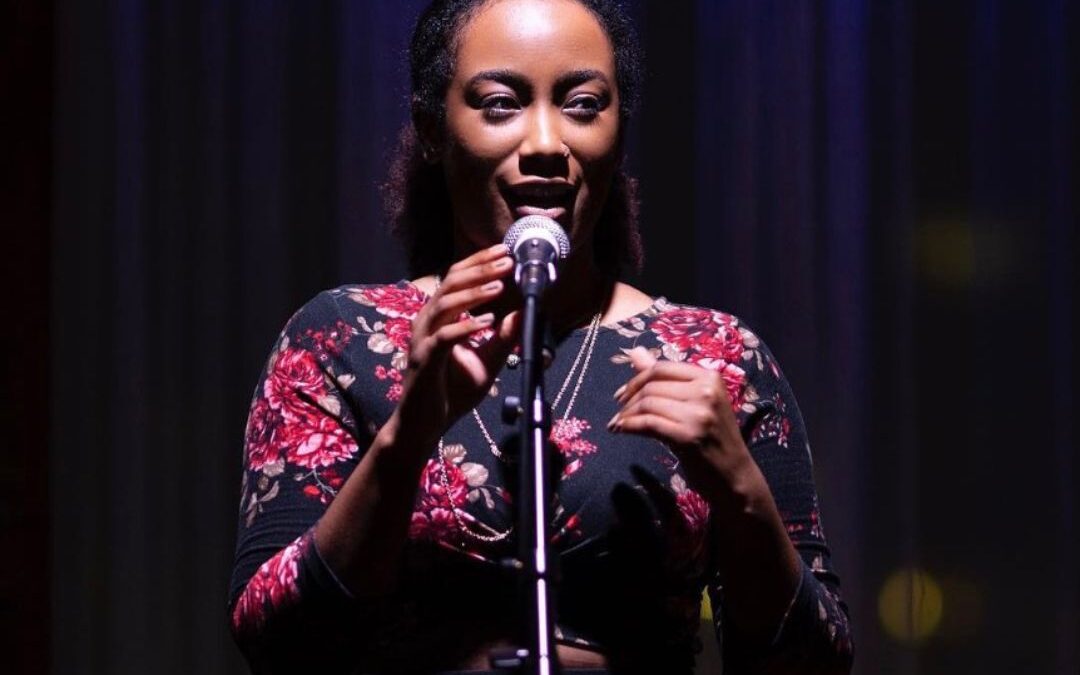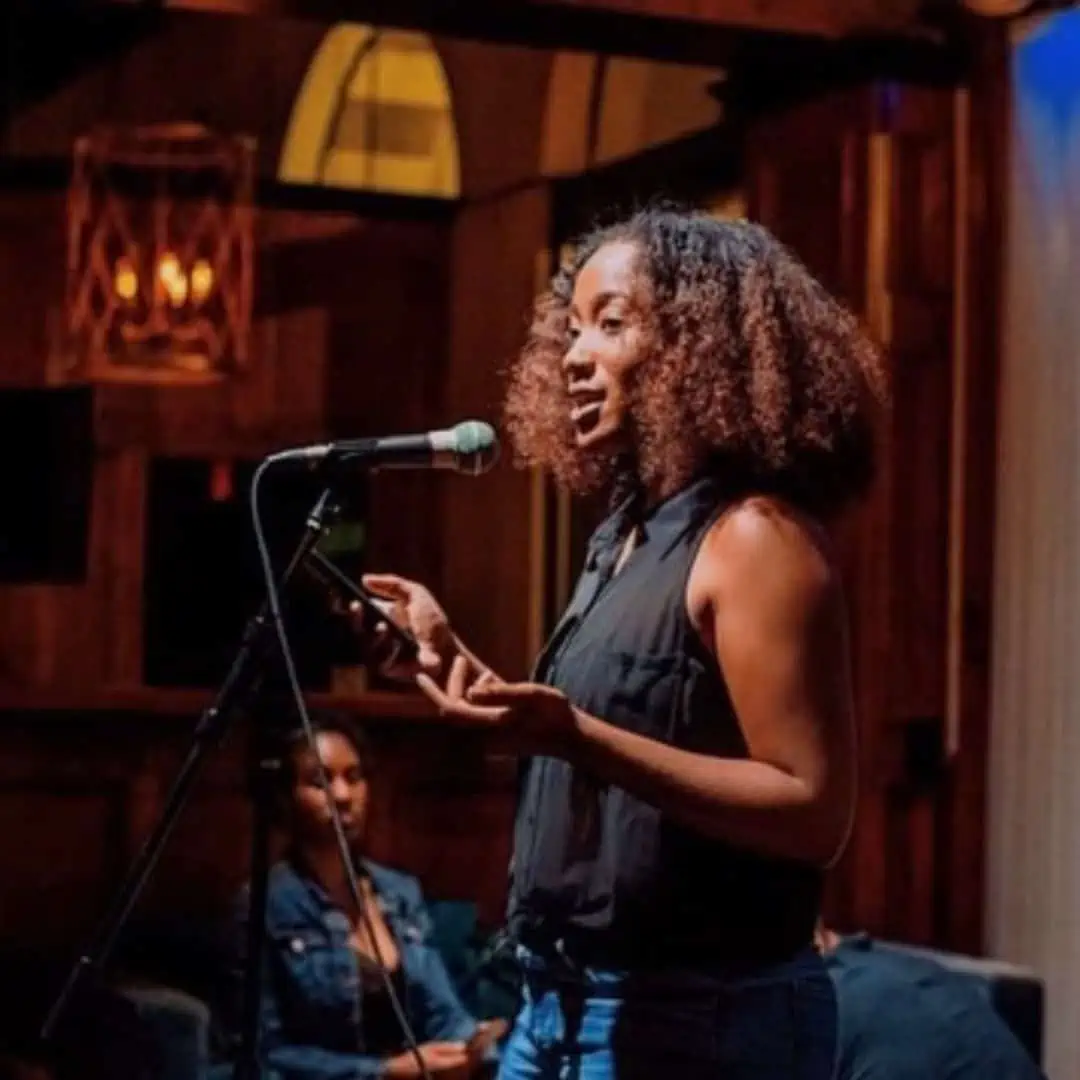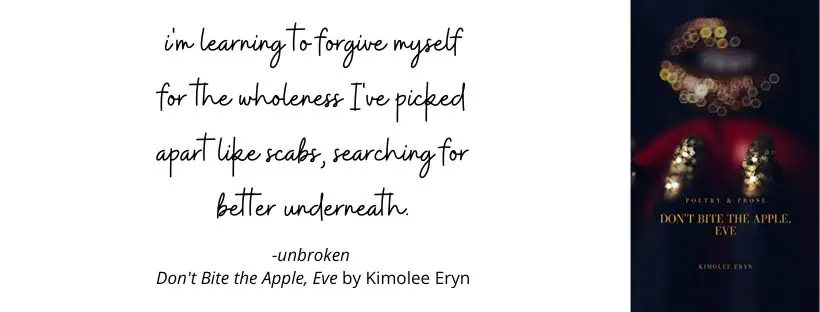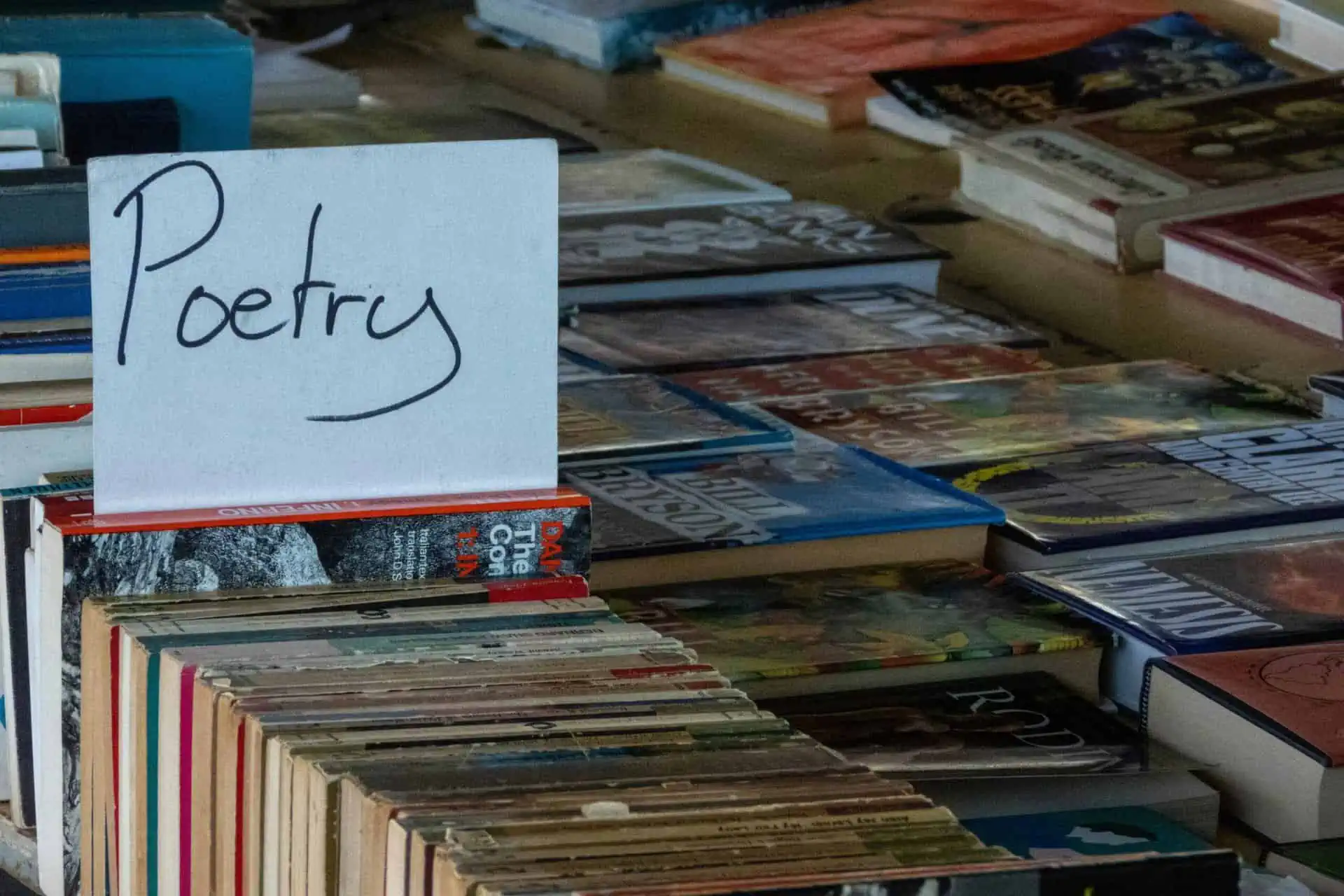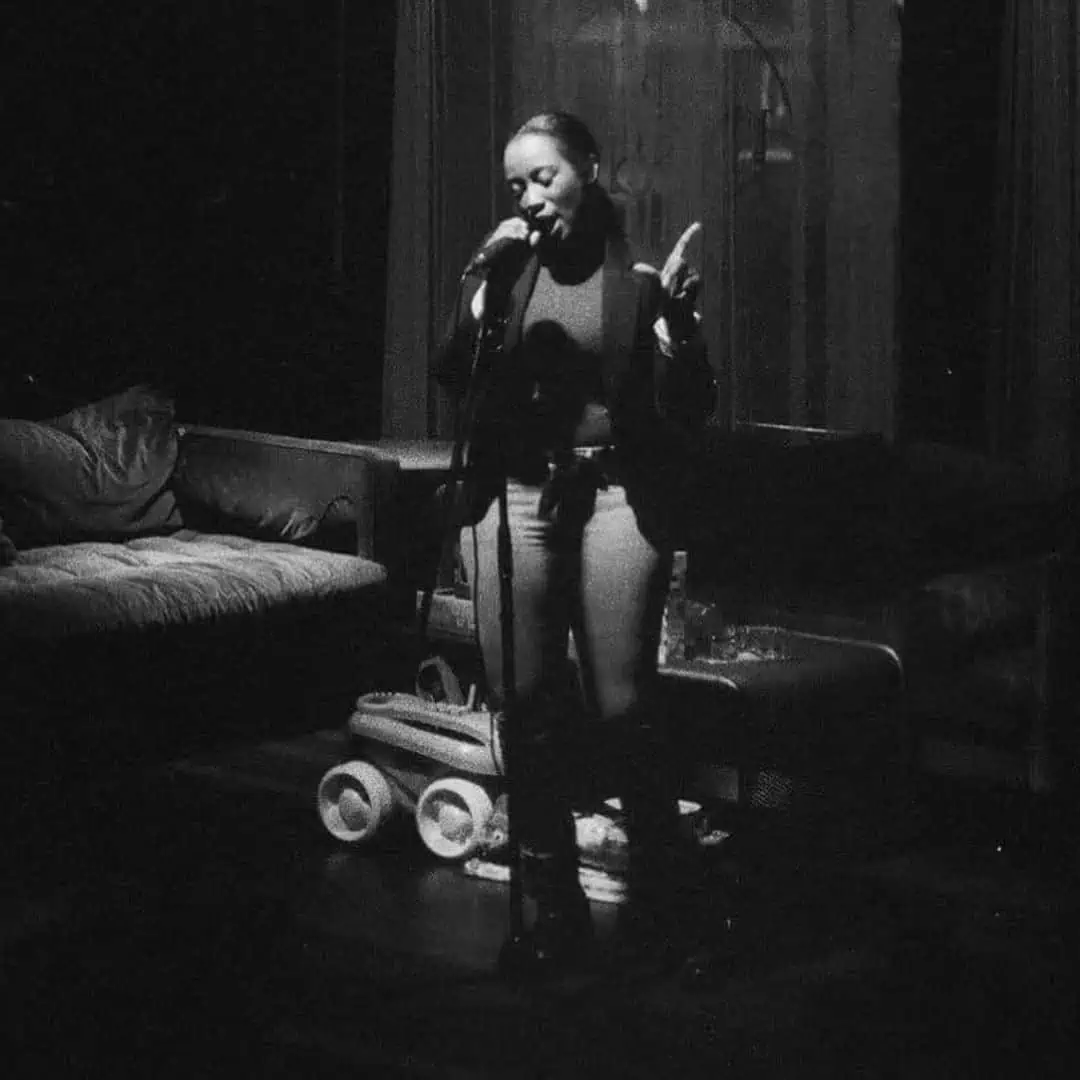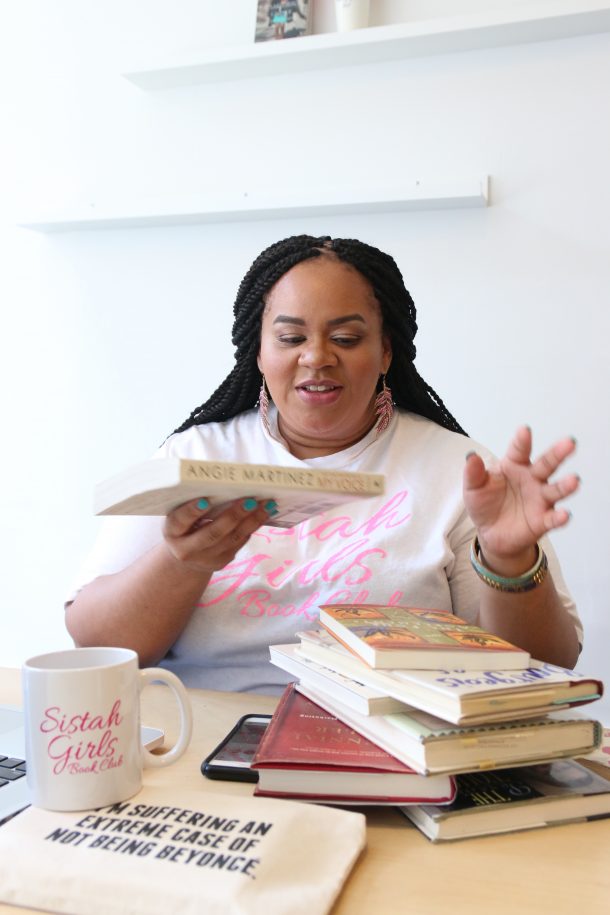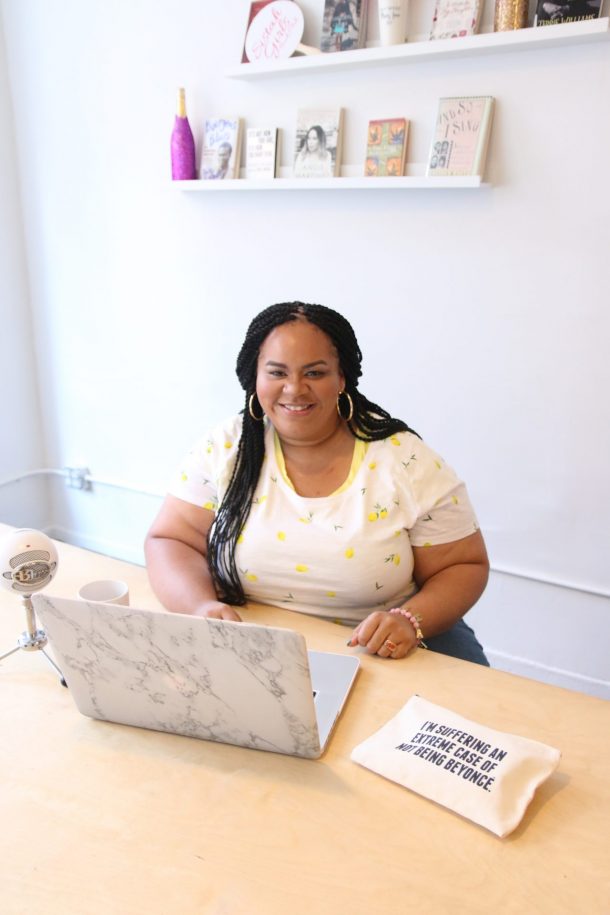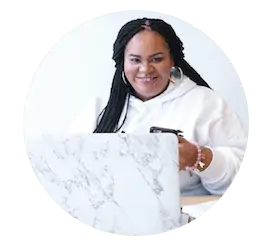Kimolee Eryn: The Poet You Didn’t Know You Needed
Confession time: poetry scares me. I’ve tried reading it dozen of times, by many different writers—and every time resulted in me feeling as if I’d missed some great point.
I felt underwhelmed which led me to the conclusion that it was my own lack of understanding rendering the genre inaccessible.
Until I read Kimolee Eryn’s poetry.
In its pages, I found pieces of myself and validation of feelings I thought too immature to feel. Her work is the sort that leaves you quickly turning the pages, nodding your head, and basking in memories long forgotten.
Her gift with words has created numerous opportunities and roles for her including Program Coordinator, Curriculum Designer, Screenwriter, and most recently, the Artist in Residence at the Harriet Beecher Stowe Center in Connecticut.
I had the chance to chat with Eryn about her inspirations, influences, and ideas about the future of poetry. I also learned the #1 book of poetry you absolutely must read, and her views on the greatest rapper (aka poet) of all time.
This interview has been edited and condensed for clarity.
SGBC: Let’s start this off with something fun: Write a poem using only emojis!
Kimolee: This was difficult! I now have some new suggestions for emojis we need but this is one of the shorter pieces from my book, Don’t Bite the Apple, Eve.
I’d love to give out some copies to anyone who comes closest! [Leave your answer in the comments for a chance to win!]
🚶🏿♂️⬅➡
🌊🚫🖤
🎢 🛏 🛏🦵🏾🦵🏾
🚫📝
🙏🏾🚶🏿♂️🏠
🔥🫀
🔂🫀☝🏾
SGBC: While I try to figure that out, here’s a “serious” question for you. I know it’s customary to ask writers when or why they started writing, but let’s reframe that just a bit. When did you realize you couldn’t live without writing?
Kimolee: It’s an ongoing epiphany for me. When I started college, poetry began to feel vital but I didn’t have the awareness to articulate it at the time.
It was in those years that the tension in my writing grew and after quitting multiple times, I came to see writing as a thing that wouldn’t allow itself to be put to the side that easily. But again, it’s an ongoing epiphany.
When I saw Hamilton for the first time (on Disney+; I couldn’t justify spending rent money to see it live), I felt so seen by the “Nonstop” number.
It was the first time I felt like my connection to writing was properly articulated. I wrote my way out is something that comes to mind often and I’m reminded that words will never be done with me.
SGBC: You mentioned your latest work, Don’t Bite the Apple, Eve. It’s filled with prose, poetry, and “musings,” many of which contain expressions of your faith. How has your faith informed your storytelling?
Kimolee: After Don’t Bite the Apple, Eve was originally published in 2018, I started feeling so far removed from it—like there was no place for the poems written by the old version of myself in my new space, so I put it out of my mind aside from performing some of the pieces from time to time.
When I recorded the audiobook last year, I read through it from start to finish for the first time since releasing it and I saw so much growth.
Coming back to it forced me to see the work for what it really was: a picture of grace. It’s a testament to who I’ve been allowed to become because of the grace of God.
My faith inspires the freedom I live with, not a freedom to mess up intentionally, but for the moments when missteps feel inevitable. I want my work to reflect the message that God’s grace is sufficient.
SGBC: What inspired this project and how did you stop yourself from adding just one more poem? How do you know when a piece is finished?
Kimolee: I don’t know that I did stop myself from adding just one more poem! Haha! I had been writing for a long time and there was a lot that accumulated between my college years and when I felt inspired to put it all together.
I knew I wanted to call it Don’t Bite the Apple, Eve. It was a line from a Jay-Z song that was stuck in my life for a long time but even when I put down rap music altogether, the line still resonated with who I was and where I was at the time.
Something I tell my students is that a poem is finished when you decide that it is, but also, it’s never really done. Same thing with compiling a body of work— it can last forever if you let it.
SGBC: There are several longer poems, what I’m calling “vignettes,” throughout the book that take a deep dive into past situations. How do you incorporate personal experiences and emotions into your writing without revealing too much about yourself?
Kimolee: Those vignettes are decisions. Decisions to share particular moments despite what becomes understood about me based on what’s shared. I don’t think my intention at the time was to not reveal too much about myself. I don’t think we have to work too hard at being guarded. That came naturally to me.
I was acutely aware of this part of me that longed to be known and accepted, and that’s the part of me that had the final say in the edits of those pieces. As insecure as that part of me has always been, as much as it has functioned in a close my eyes and press send kind of way, it has continuously won out over every other part that fears it.
SGBC: One of my favorite pieces in the book is titled, “the limit does not exist”, which speaks on the changes that can happen as our influence increases. Do you feel a need to meet the expectations of your readers or audience, and if so, how do you balance that with the desire to be creative and experimental?
Kimolee: I don’t. I wrote for myself for years before I ever shared it and when I did begin to share it, I wasn’t usually open to anyone’s opinions about it because I knew I was still too new to my own expression. I didn’t even allow myself to read poets like Maya, Audre, or Toni—whose work teachers encouraged me to explore—because I didn’t want to have anything to try to measure up to.
A part of it was fear that I couldn’t measure up but it worked in my favor. It helped me decide who I was and how I wanted to exist in the world of poetry. That took a really long time but I don’t think I’ll ever regret it.
I think I’ve found the courage to sit with the imperfections of my life and visions and allow them the space and time to become what I need them to be and trust that my vision for them is enough.
SGBC: Nina Simone said that an artist’s duty is to reflect the times. What role do you believe poetry and writing play in society, and should that include addressing social and racial issues?
Kimolee: That’s been one of my favorite quotes. I love how Nina Simone phrased it. I don’t know how carefully she chose the placement of the words but a question we can pose to ourselves is, “How can you be an artist and not reflect the times?”
A lot of my writing has been introspective, but I feel a lot as it pertains to the structure of the world around me. It’s infuriating but it also informs the way I maneuver through life. I think it’s important to reflect that even in those introspective pieces, especially if any part of our goal is to create for posterity.
This is how art does the job history should do. History told through the lens of history has a way of glorifying what was done and how.
Art has a way of creating an emotion-laden lens to see our history through and I think the feeling of it is too important to leave out —but when we’re all feelings and no facts, it can be equally destructive.
Writing, reading, and even listening, become seeds of ideas planted. Those planted seeds allow possibilities to grow where they might not have grown before. We need to be inspired to grow in what we read and so it’s important that writers cover every aspect of life.
SGBC: What do you think are the most common misconceptions about poetry, and how do you address them in your work?
Kimolee: I think there’s an academic introduction a lot of us received as our first impression of poetry and it put the art form in an educational box if you will.
Learning poetry as an art form is drastically different from learning poetry as a thing well-off white people did in the past.
Poetry as an art form humanizes poets and makes it feel celebratory whereas academic approaches to poetry can come off as a little unwelcoming. I don’t exactly try to address any of it in my work explicitly.
When I teach, I like to teach it as an extension of my students’ thoughts and interests. I ask them what they care about and then show them how poetry can meet them right there on the football field, on the basketball court, in the nail salon, at the firehouse their family member works at, and even at the juvenile detention center.
SGBC: Do you think our society respects the art form?
Kimolee: I think poetry has been the little cousin of music in our culture; it’s still a bit underground in my opinion. As popular as it has become since I began back in middle school, there’s still an elusiveness to the understanding and acceptance of it.
You hear poetry on rap albums like Kendrick Lamar’s and people kind of bypass the fact that it’s poetry and attributes it to music because they like music —their minds don’t even make the connection.
To them, it’s just a part of the song but without music. I think it’s just difficult for people to reconcile what they first learned of poetry with all the other ways that it exists.
SGBC: What literary movements or styles have influenced your work the most, and how do you incorporate them into your writing?
Kimolee: In my first semester of college, I sat in my dorm room listening to the new Jay- Z album with my roommate and a couple of her friends. They were all enthusiasts like me so we sat and listened, paused the songs, unpacked the lyrics, got hyped over how intricate they were, pressed play, and did it all over again.
The flow of Hip-Hop lyricism has been a huge influence in my writing. Specifically, playing with my cadences based on the placement of my rhyme.
Having two words rhyme back-to-back kinda feels like a kickoff point that propels the rest of the line. The lyricism is engrained at this point. Even when I don’t do it intentionally, it pops up in my work.
SGBC: You’ve referenced Hip-Hop several times now, so I have to ask, especially since this is such a hot-button issue. In your opinion, who is the G.O.A.T—greatest of all time?
Kimolee: It’s funny to me that I feel so nonchalant about my thoughts on this when at one time I’d argue down anyone who said Jay-Z wasn’t the greatest.
Then when Kendrick came along, I rallied for him but I realized that my perspective of the greatest was always based on what I needed from art.
I’ve always had a love for art that explored a wide range of things. Jay-Z had the layered entendres for me. I’ve shifted from rap music since so I’m not as invested but if I had to choose, I’d say Kendrick Lamar. Out of everyone, I’d trust him the most to grow with his convictions and share those convictions with us honestly in whatever way suited him while still being entertaining.
SGBC: I respect that choice! I haven’t listened to Kendrick’s catalog as much as I’ve listened to Jay’s, but his genius can’t be denied! For those of us interested in writing poetry, is there a right or wrong way to do it? How would you suggest a beginner balance the line between learning and following established rules, and just writing the damn thing?
Kimolee: Just write the thing! You don’t want to overwhelm yourself with what’s been done before. You want to find out what you need from poetry before examples tell you what you should take from it.
Figure out what you care about. Write it all down. Pick another idea to bounce the first one off to give yourself a container for the poem.
Write what you think about it, how you feel about it, and any questions you might have. I like to create a word or idea bank when I start. Words and sentences based on the overarching idea. Then I do a little bit of research to piece together some ideas that might be lingering that I don’t have full knowledge of.
Dig into some literary devices. Turn that thought into a metaphor by finding something to compare it to. The important thing to remember is that a poem is hardly a poem until it’s edited. That’s to say, we rarely write anything “perfectly” to start so don’t let that first draft deter you.
SGBC: Speaking of just writing, last year, through the Permission to Write mentorship program, we had the opportunity to work together on the relaunch of your debut novel, Single Ladies’ Bucket List. What inspired you to take the leap from writing poetry to writing a novel?
Kimolee: Some things don’t fit into the neat little boxes that poetry provided for me. Furthermore, I’d get frustrated when I’d try to write a poem about something that felt much too big for stanzas and rhyme schemes.
I started with fan fiction; creating storylines for my favorite television characters and creating the life of freedom I dreamed about but couldn’t live at the time.
It took a while but I realized that as much as I was a poet, I was primarily a storyteller. Single Ladies’ Bucket List was me embracing that personal truth.
SGBC: What was the biggest challenge you faced during the transition from poet to novelist?
Kimolee: I want to say it’s imposter syndrome because it’s one of those things that pops up like whack-a- mole. The redundancy of it has made it a little easier to ignore, especially during the writing phase. It’s easier to push through when I don’t feel like I’m defending my right to write.
SGBC: Alright, let’s shift a bit and do a few “just for fun” questions. If you could have the first edition of any book, what would it be?
Kimolee: I’m gonna say Their Eyes Were Watching God. I read it in high school English class and I understood it because we discussed it in class but when I read it again a few years ago, I understood it from a whole different space.
That place of kinship with the essence of the story itself, the Blackness and the womanness of it, and with the audacity of Zora Neale Hurston to write as provocatively as she did in the most earnest way.
As a fully actualized Black woman in this modern world, it reads like a permission slip to be as Black, as woman, as author, as pot stirrer, as table flipper, and as fire starter, I please.
SGBC: Rent, buy, or return: What book would you rent, what would you buy again, and what book would you return (if you’re into that)?
Kimolee: I’d rent Persuasion by Jane Austen. I’d buy Just as I Am by Cicely Tyson all over again, and I’d return every book I’ve ever bought about racial injustice written by non-Black authors.
Reading them feels triggering in a way I’d prefer not to engage with. Outside of the statistics and shock value of stories I hadn’t yet heard, those books felt like someone on the outside telling you how you already feel about things you already knew were wrong while getting paid for leeching off of the experience. It feels like it’s become a gimmick.
SGBC: What’s the one book of poetry that everyone should read?
Kimolee: Because of a Woman by Malanda Jean-Claude. It’s such a stunning read all the way through!
SGBC: And lastly, annotating books has become the newest TikTok craze. What are your thoughts on detailing your reading experience on the pages of your books?
Kimolee: I bought black felt pens and highlighters specifically for my reading stash. I love writing in my books which is why I don’t lend them out. I’d rather buy a friend their own copy. The notes I take aren’t just for me.
I consider the books I buy and how I’d want to leave them for children and grandchildren when I’m gone. The notes are for them. I don’t want them to just read what I’ve read but I want to leave bits and pieces of myself on the pages of books I love so they can feel a little closer to me in ways I might never think to intentionally share.
Keep in touch with Kimolee on Instagram @kimoleeeryn and Twitter @kimoleeeryn. For talks and tips on mental health, check out her Mental Health Mondays blog.
